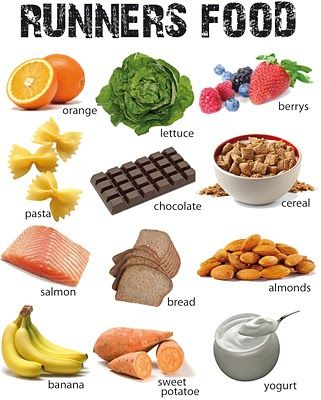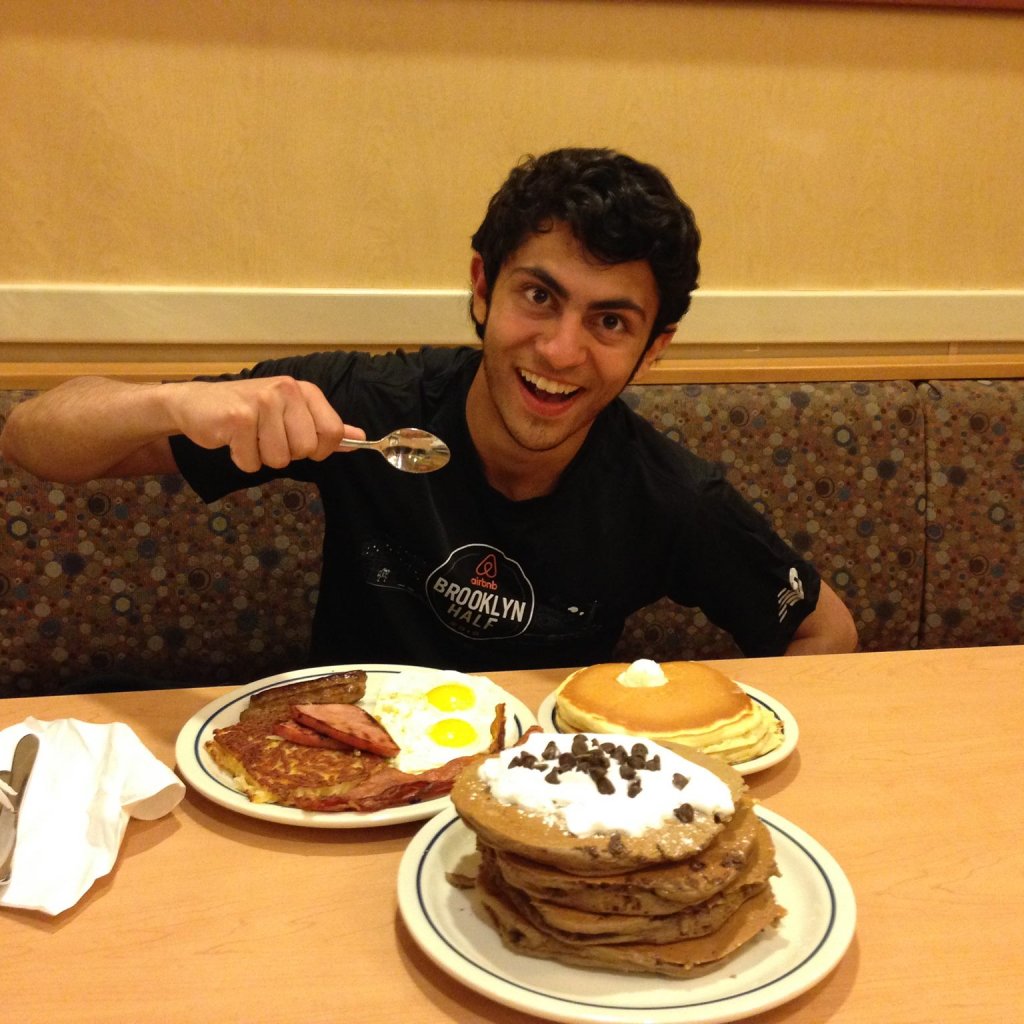Suffering from Runger? 4 Tips to Tame Your Rungries

Runger is the strong feeling of hunger you get after a workout. It’s a common side effect that many runners face but there are a number of ways to prevent and cure your post-run hunger.
Have you experienced this before? You finish up a run or other challenging workout and that terrible feeling hits. You know the one…. that feeling that you want to devour everything in your path.
How do you avoid this? Is it normal?
What is Runger?
Runger is the strong feeling of hunger you get after a workout. It’s insatiable and very strong and makes you feel like you can’t move another step unless you get some food into your body. As a runner, you have probably experienced this. But do you know what causes it?
The first important thing to understand is that getting in a tough workout can leave you feeling depleted. That can be caused by a few different things. You need to ask yourself if you fueled yourself adequately before your run. If you failed to get enough good stuff into your body pre-workout, it can be easy to see why you feel tired and hungry after.
Another contributing factor to runger is if you did not fuel yourself properly during your run. If you are running for 60 minutes or more, you probably need to take in some calories during your workout.
Failure to fuel during a long effort can not just cause performance problems, it can also lead to a dietary disaster when you end up eating a box of cereal washed down with a gallon of chocolate milk.
Just because you take in fuel does not mean it is the right fuel. Sometimes your body is trying to tell you that it needs something in particular. In other words, you don’t just need calories you need specific nutrients to keep yourself going.
4 Tips To Deal With Runger
Important ways to deal with runger are to set yourself up for success. How do you achieve this?
We have tips to prevent hunger before, during, and after your workout!
- Pre-run Meal: Eat an adequate meal before your long run or exerting workout.
- Fuel Your Run: Taking in fuel during your run will help you to prevent boinking while running. It also helps keep you from getting the rungries.
- Post-Run Snack: If you plan your post-run snack ahead of time, this can help prevent problems. More on this.
- Proper Nutrients: Ensuring you have proper nutrients for the rest of the day is not only a good way to prevent overeating on bad food after your workout, it sets you up for success in your next workouts.
Can I Eat More if I Run?
On average, runners burn approximately 100 calories for each mile that they run. This means that if you are trying to maintain your weight, you can add that number of calories to your diet on run days. However, you need to be sure that you are not eating way more than that.
Believe it or not, most runners tend to overconsume empty calories after a long run. This can lead to weight gain which, for people hoping to at least maintain by working out, can be frustrating.
How Many Calories Do Runners Need to Eat?
The answer to calories needed by any given person in a day is very complicated because everyone’s needs are different. One person can eat 3,000 calories in a day and maintain their weight while another will be carefully weighing every single thing they put into their mouth, capping at 1600 calories, to do the very same thing.
The amount of calories you need to consume depends on many things including your body size, amount of physical activity, metabolism, etc.
Eating for Recovery
When eating for recovery, you need to take certain things into consideration. The first rule of thumb is to take in calories somewhere within an hour of finishing your workout. Ideally, you should have a snack closer to 30 minutes post-workout. The post-workout snack should have a carb and a protein.
Some of my favorite recovery snacks include both “real food” meal-type items and convenience foods.
- Peanut butter bagel
- Tuna on whole grain bread
- Chicken breast with grilled veggies
- Protein shakes
- Protein bars/meal replacer bars
What Foods Should Runners Avoid?
Let me start by saying I am a firm believer in moderation. If you want a piece of cake, you should have a piece of cake. The thing is that you just can’t eat cake every single day. Or better yet, don’t think you can use cake for a quality recovery fuel.
When thinking about foods to avoid, you should think about it within the context of what you are trying to achieve at that moment. If you are getting ready for a long run on Saturday morning, there are certain foods you should avoid the night before. This includes anything too high in fiber or fat.
When looking at foods to eat the morning of a long run, be certain it is not something that will disagree with your stomach. Many people are careful to have a carbohydrate-rich breakfast on long run days.

I again both high fiber and fatty foods on a morning run day. In addition, I won’t eat highly acidic foods like oranges because they are likely to cause reflux.
Post-workout, it is a good idea to avoid having a sugary snack before taking in some quality fuel. Why? Because that is less likely to set you up for success.
Thoughts from a Running Coach
Coach Evan Wood, Just Another Running Coach, has this to say: “Usually, right around this time of year when my marathon training reaches its peak, I find myself getting hungry ALL. OF. THE. TIME. Seriously, my appetite goes through the roof and I find myself constantly embattled about stopping at my local pharmacy to pick up some snacks every time I walk by.”
“I’d say I give in half of the time, and I don’t really feel guilty about it at all. The body knows what it wants and life is too short to deprive it of satisfaction (with reasonable limitations, of course).”

“My post-race tradition for a couple of years was to go to IHOP and down an entire grand slam breakfast combo (and then some). It never disappointed.”
Tips from Runnerclick Pro Nutritionist Megan Robinson
For example, if you eat just a slice of toast with butter and fruit for breakfast this can leave you hungry 1-2 hours later since carbs digest more quickly. By adding an egg with avocado to the toast and fruit you have now boosted your intake of protein and fat which digest more slowly and maintain energy levels for a longer period of time.
- Cottage cheese and berries
- Nut butter and apple slices
- Rice cake with nut butter and banana slices
- Greek yogurt with berries and chia seeds
- Cheese and whole-grain crackers
- Handful of nuts with fruits
Latest Articles
 Is Running on a Treadmill Easier Than Running Outside?Runners have their own preferences, whether it is treadmill running, running outside on the road, or exploring trails. So...
Is Running on a Treadmill Easier Than Running Outside?Runners have their own preferences, whether it is treadmill running, running outside on the road, or exploring trails. So... Is It OK to Use Trail Running Shoes on the Road?While trail running shoes can be used on roads, especially in situations where a runner encounters mixed terrains or pref...
Is It OK to Use Trail Running Shoes on the Road?While trail running shoes can be used on roads, especially in situations where a runner encounters mixed terrains or pref... How to Fix Sore Quads After Running?Rest, ice, gentle stretching, and over-the-counter pain relievers can help soothe sore quads after running. Also, ensure ...
How to Fix Sore Quads After Running?Rest, ice, gentle stretching, and over-the-counter pain relievers can help soothe sore quads after running. Also, ensure ... 10 Fruits With The Most Electrolytes to Replace Sports DrinksThese fruits are high in electrolytes such as potassium, magnesium, and calcium, essential for hydration, muscle function...
10 Fruits With The Most Electrolytes to Replace Sports DrinksThese fruits are high in electrolytes such as potassium, magnesium, and calcium, essential for hydration, muscle function...

